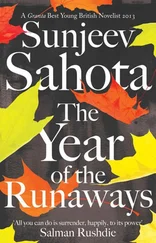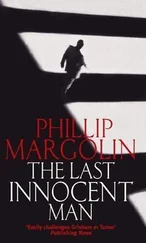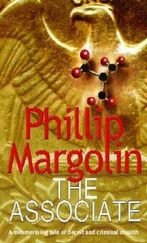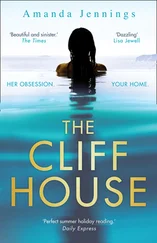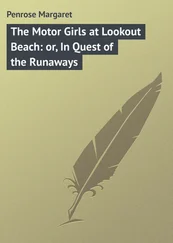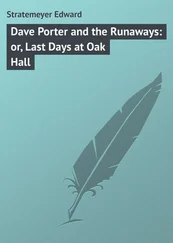Phillip Jennings - The Runaways
Здесь есть возможность читать онлайн «Phillip Jennings - The Runaways» весь текст электронной книги совершенно бесплатно (целиком полную версию без сокращений). В некоторых случаях можно слушать аудио, скачать через торрент в формате fb2 и присутствует краткое содержание. Год выпуска: 1997, Издательство: Dell Magazines, Жанр: Фантастика и фэнтези, на английском языке. Описание произведения, (предисловие) а так же отзывы посетителей доступны на портале библиотеки ЛибКат.
- Название:The Runaways
- Автор:
- Издательство:Dell Magazines
- Жанр:
- Год:1997
- ISBN:нет данных
- Рейтинг книги:3 / 5. Голосов: 1
-
Избранное:Добавить в избранное
- Отзывы:
-
Ваша оценка:
- 60
- 1
- 2
- 3
- 4
- 5
The Runaways: краткое содержание, описание и аннотация
Предлагаем к чтению аннотацию, описание, краткое содержание или предисловие (зависит от того, что написал сам автор книги «The Runaways»). Если вы не нашли необходимую информацию о книге — напишите в комментариях, мы постараемся отыскать её.
The Runaways — читать онлайн бесплатно полную книгу (весь текст) целиком
Ниже представлен текст книги, разбитый по страницам. Система сохранения места последней прочитанной страницы, позволяет с удобством читать онлайн бесплатно книгу «The Runaways», без необходимости каждый раз заново искать на чём Вы остановились. Поставьте закладку, и сможете в любой момент перейти на страницу, на которой закончили чтение.
Интервал:
Закладка:
“Who knows? Their diplomats talk so carefully we can’t be sure of anything. All the fire they’ve breathed hasn’t burnt us yet.” Rachel looked at the group and lowered her voice. “Watch their eyes. They’re taking all this in. It’s such a change.”
“Our parents might send spaceship-soldiers to rescue us,” Peder said. “You don’t want us to fight them, but we could talk to Earth on the radio. We could tell them you’ve made us smart. They should be happy about us. We’ll tell them you’re not bad people.”
Carmen pondered. “This actually might be a good idea. We could put you on TV, so they’d know you were speaking your genuine thoughts. Rachel, what do you think?”
“I think they haven’t plateaued yet,” Rachel said. She shivered. “It’s frightening, almost. Two trifts ago Peder couldn’t reliably dress himself.”
“Frightening?” Peder asked. “Oh, I see. Like with dark matter.”
“How? Explain what you mean,” Carmen said.
“You used this Higgs thing to start collecting dark matter inside Hidalgo, and now the dark matter collects itself.”
“A runaway process,” Rachel agreed. “You’re saying you’ve got runaway intelligence.”
“Isn’t that what you’re afraid of?”
“I’m afraid it may go so far that—yes. Dark matter could ruin the inner system. Intelligence could ruin you as a human being, if we can’t teach you fast enough to keep up.”
“We’ll have classes right after porridge,” Carmen said. “While Rachel goes north for clothes.”
In reading class Hakim complained about the absurdities of English orthography. Sanjay agreed. “Even the language has bad logic. There’s ten times too many rules, and none of them work completely.”
Carmen gave them Esperanto cassettes. “Try this, just for fun. It was a great idea, but it never caught on.”
They page-flipped through the first exercises. “This language is bona, ” Hakim said. “Why didn’t people like it?”
“Imagine you’re flying an airplane. You’ve got a radio headset on, but the plane is noisy, and you’re bumping through a storm. Someone down in the control tower is talking to you, trying to guide you. You can’t hear her very well. She’s using a verb: rapidas. Or is it rapidis? Or rapidos? Present, past and future tenses. In English it’s much more distinct. Am hurrying, hurried, will hurry. All the illogicalities of English make it easy to sort out what might have been said. In real life there’s static in all our headsets. When you’re used to English you escape that static.”
“But if we were used to Esperanto, and if we fixed the endings, couldn’t we keep the beautiful logic?”
Carmen sighed. “Since we’re so interested in logic, let’s switch to math. After a day or two let’s introduce some algebra.”
Lunchday followed math. After lunch the six paired off in three directions.
Rachel returned to the south campus in her buggy, and found the commissary empty. She went to the girls’ dorm. Michiko and Sanjay responded to her shouts. Peder watched through the window blinds of a boys’ dorm bedroom. “She’s upset. She’s telling them not to have sex anymore,” he reported to Carmen. “She’s telling them about babies.”
“Babies are a lot of trouble,” Carmen admitted. “Come along. Apparently my sister wants everybody to assemble out there.”
The group assembled. Rachel handed out clothes. “Let’s check the herb garden,” she said. “We put up netting to keep the geese and turkeys away, and the bigger animals can’t climb over the fence. I want to teach you some practical food-lore. See, knowledge goes in all directions. Each of these herbs has a place in human history. Every plant was first discovered somewhere, or bred, and then carried off to new places. Now even to new worlds!”
Rachel’s herb lesson introduced the group to places like Egypt, Greece and Persia, Central Asia, the Celebes Islands and Mexico. They went inside and she handed out picture-story cassettes that talked about ice-age people and the first civilizations. Peder was amazed at how big Earth was, and how much history it had.
Rachel agreed. “People devote lifetimes to studying just one little island, or a few generations of some medieval family.”
Carmen bid goodbye to Rachel and took over the classroom. She opened a closet full of musical instruments. “Let’s see how fast you can learn notation,” she said.
Peder glanced outside. Rachel emerged from the commissary carrying a hatchet. She strode toward a corner of the campus, boxing in a pair of retreating turkeys.
“Blow.” Carmen handed Peder a worn plastic trumpet. He let out a blat. He experimented with the finger-holes, developing a range of blats. Outside, he saw Rachel twirling a headless turkey by its feet, spraying rings of blood. The turkey kept flapping and pulled a leg free of her grip, even though it was dead. Rachel gave up and let it go, and it tumbled in the long campus grass. By the end of this short day, it was still making convulsive movements.
Peder played his plastic horn through the night. Musical notation came easily. The group’s next lesson was anatomy. Then astronomy. Smelling of soap, Rachel came in and took over. “Thank God,” Carmen said. “I feel like they’re wringing me dry. Soon we’ll have to hand them over to the CD library and stand aside.”
“You’ll find work to do in the commissary,” Rachel said. “I’ve killed a turkey for next trift.”
Carmen left. Rachel taught sex education, and then sketched out the history of life on Earth; evolution, disaster, more evolution, more disasters. The accompanying movies were spectacular. Continents floating around! Dinosaurs! Comets!
“Seven million years ago, some plants learned to extract a third again as much energy from sunlight as the others. We call these ‘carbon-4’ plants,” Rachel said. “They spread over the Earth. Their hunger sucked carbon dioxide out of the atmosphere and reduced the greenhouse effect. After a while Earth started having ice ages. The ice was hard on the old kind of forest vegetation, but carbon-4 grasses adapted, so for them this was a good disaster. Birds and mammals adapted too. Carbon-4 plants had more food value. Soon they were cropped so much that their advantages over the old forests were almost nullified. We humans are a product of this new environment of grass and ice ages.”
Peder latched onto the phrase “a good disaster.” He raised his hand. “You say there are changes that hurt most things, and can’t be turned around, but a long time later we learn they were good.”
Rachel nodded. “You’re correct in the abstract. Earth is going through disaster right now. Many varieties of life are becoming extinct. The loss is in front of our eyes. The eventual gain is something we can only guess at. This disaster is caused by too many people, so we’re responsible, but we don’t dare say we’re doing a good thing. We’re breaking down a system of life just to make more room for our favorite carbon-4 plants. That’s called hunger. For a while human hunger was a runaway monster. We’re still not sure Earth’s population laws can stop the destruction.”
Peder caught Michiko’s eye. She nodded. She’d noticed too. Runaway processes led to disasters, but some disasters could be good. They’d get a chance to talk after supper, about the good of too much dark matter, and the good of too much intelligence. Peder raised his hand again. “We need to learn how to use the library.”
Long after supper, and after Rachel and Carmen went to bed, the group used their sleeping shift to study history, molecular biology and physics. Next trift the odors of roasting turkey drifted out of the commissary building. Around Day 25 their appetites drew Peder, Michiko, Olga, Sanjay, and Hakim from the library.
Читать дальшеИнтервал:
Закладка:
Похожие книги на «The Runaways»
Представляем Вашему вниманию похожие книги на «The Runaways» списком для выбора. Мы отобрали схожую по названию и смыслу литературу в надежде предоставить читателям больше вариантов отыскать новые, интересные, ещё непрочитанные произведения.
Обсуждение, отзывы о книге «The Runaways» и просто собственные мнения читателей. Оставьте ваши комментарии, напишите, что Вы думаете о произведении, его смысле или главных героях. Укажите что конкретно понравилось, а что нет, и почему Вы так считаете.

